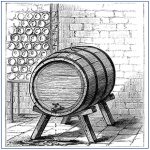Food Truck Commissary Requirements
The differences you will see between state to state and county to county, as far as what you are required to have on your food truck, will be determined by what is on your menu. Some states have minimum requirements no matter what is on your menu, in the case you do expand your menu.
Laura Collier, Esq. is a food & beverage attorney based in Raleigh, North Carolina. Laura is a longtime member of the food & beverage industry, including experience working with wine & beer retail, restaurants, alcohol distribution, and event planning.
In this CLE clip, Laura discusses food truck commissary requirements.
Basic Truck Requirements:
Enclosures, Screens, or Fans – required in order to keep out any pests such as flies or bugs that could cause contamination out of your truck.
Potable Water Source – water that’s safe for drinking, used in food preparation and drinking.
Hand-washing Sink – hand washing is at the forefront of keeping down food contamination.
Sanitation Sink – & Drainboards – some jurisdictions require a 3 compartment sink, washing, rinsing, sanitizing, though some given the limited space on food trucks only require one sink.
Ability to Control Temperatures – the truck will need some ability to control temperatures of the food that’s stored, prepared, and served to customers.
Mechanical Ventilation and Fire Suppression System – either a hood or Ansel and some way to put out fires.
Waste Disposal System – some jurisdictions have very specific requirements as to the placement and size of the outlets for disposing of waste. Municipalities want to ensure you have proper waste storage and disposal systems, so that you’re not dumping waste on the streets, or in other inappropriate areas.
Power Source – most food trucks have a generator, but there are times when you can run a power line to a location.
Countertop & Prep Space – some jurisdictions will require a certain amount of countertop space for food preparations.








